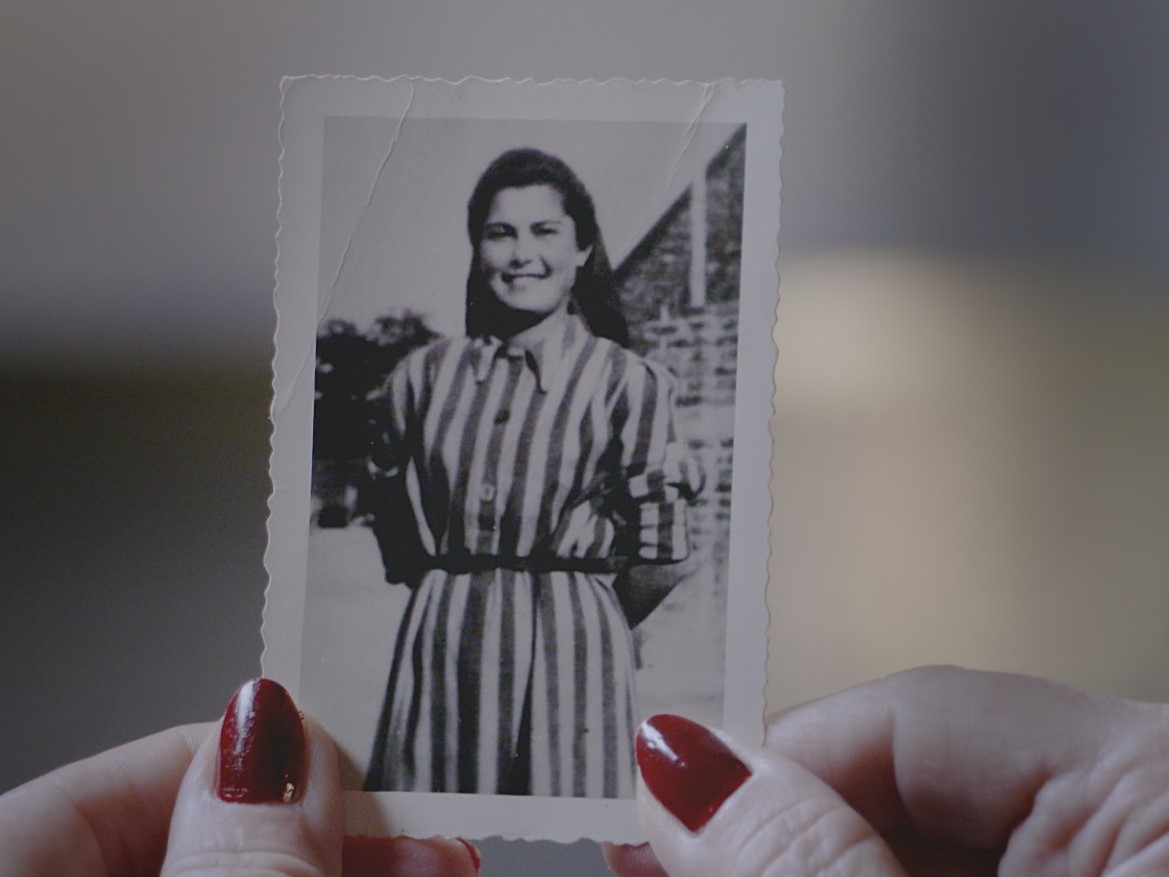s a Muslim woman who is a human rights activist, a spiritual leader and a lawyer, Seyran Ates wears many hats. While some praise her humanitarian efforts, others see her as a threat to the religious and social structures that have historically benefitted one gender over the other. Nefise Özkal Lorentzen’s inspiring documentary Seyran Ates: Sex, Revolution and Islam shines a light on Ates as a person to better understand how she became such influential and polarizing figure.
Opening with Ates reading aloud the vile comments and threats she has received online, which literally fills a binder, Lorentzen effectively sets the stage for the film’s central question: why do so many people want Ates dead? The answer is one both bathed in patriarchy and dripping in hypocrisy.
Born in Turkey, and living in Germany, it became apparent to Ates from a young age that there was a double standard that was solely governed by gender. While her brothers went out and explored their surroundings, she was repeatedly told by her mother that “you’re a girl. Girls don’t go to places like that.” The message was clear, females who did not adhere to a conservative life were considered “whores,” a word that Ates had heard numerous times at home long before she knew what it meant. Whenever she pushed back against such views, which was often, her protests at home were met with the type of harsh violence designed to evoke submission.
Unwilling to conform to such unjust standards, Ates got her law degree and began helping Muslim women in Turkey who wanted to escape their oppressive families. Little did she know that this would lead her down a path where she would be fighting patriarchy in all forms. Her opposition to headscarves in the workplace has raised ire from those on the left and the right of the debate. Eventually establishing the Ibn Rushd-Goethe mosque in 2017, a space where men and women could pray together, and is also inclusive to the LGBTQ+ community, Ates has dedicated much of her life to changing the way Muslims view gender and what it means to love. While her presence as a female Imam at the mosque no doubt lit the match of anger in some, her proclamation that “Islam needs a sexual revolution” has only fanned those flames even further.
Ates makes it clear though that the sexual revolution she is calling for is not specifically one of a physical nature, but rather a transformation in thought. A shift in thinking where women are not merely viewed as objects of desire, but as equals who have plenty to offer the world. Lorentzen’s documentary skillfully captures the connections between the threats of sexual violence Ates regularly receives: she must travel with police escort due to several fatwas placed on her. The ones who claim to be the most adamant about protecting the sanctity of a religious text about love are the same folks who are quick to resort to violence.
As Seyran Ates: Sex, Revolution and Islam touches on in one of its emotionally raw moments, where Ates visits the family of a young Muslim woman killed during a terror attack, there needs to be more conversation about the depth of hatred that some carry in the name of faith. Reflecting on various extremist attacks that have occurred in Europe in recent years, Lorentzen incorporates powerful shots of the various memorials that have arisen to honour the lives lost. Ates shows that we all have a role to play in eradicating hate. For the Muslim community, this not only means being more vocal in denouncing extremists who radicalize vulnerable boys, but also taking an honest look at the hypocrisy that many young men are growing up learning when it comes to gender roles and sex.
In a revealing moment when Ates sits down with a group of sex workers, Lorentzen’s documentary highlights the way certain Muslim men find themselves praying in the mosque during the day and partying in the brothels at night. Aside from exposing the religious loopholes that the men are using to justify their actions, and the mistreatment of the sex workers, the sequence also captures the brilliant way Lorentzen constructs the film. Keeping the identities of the workers secret, she films Ates at a table looking back and forth at empty chairs while voiceovers and still photos are used to convey the individuals who are not “there” but are participating in the conversation.
Lorentzen finds visually inventive ways to present aspects of Ates’ life which never feel forced. A perfect example of this arrives when Ates is at a kitchen table with her mother and sister. Using toy trains and other household items, the black tabl.ecloth slowly becomes a map of the key moments of her life. The joy and pain are captured in these mini monuments.
Handling rather thorny subject matter with delicate ease, Seyran Ates: Sex, Revolution and Islam is a brilliant tale of resilience, faith and hope. Regardless of whether one agrees with Ates’ views, the film challenges audiences to take an honest look at the nature of hate and intolerance. The type of revolution Ates seeks does not occur on the battlefield but rather within each of us.
Seyran Ates: Sex, Revolution and Islam premieres at Hot Docs 2021.











